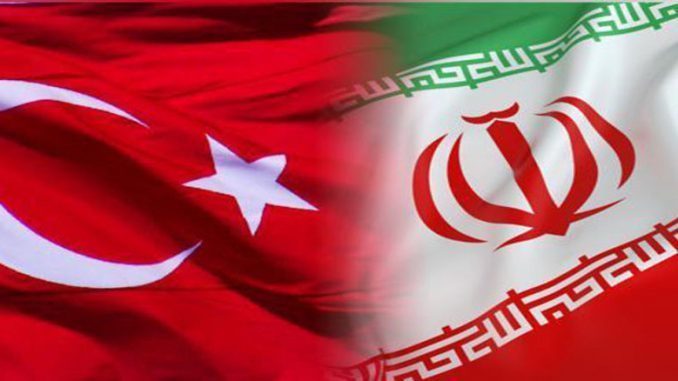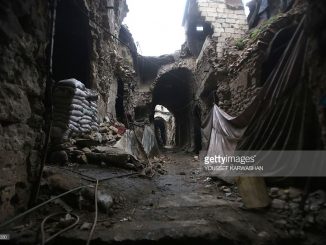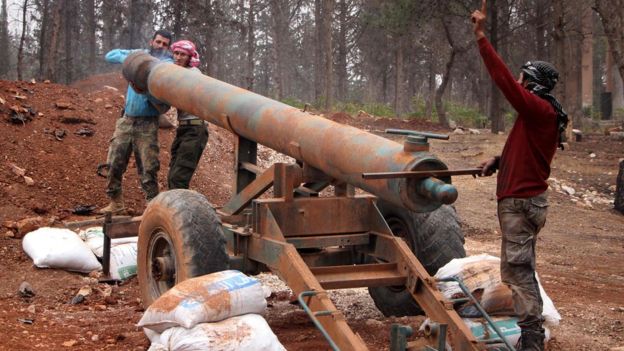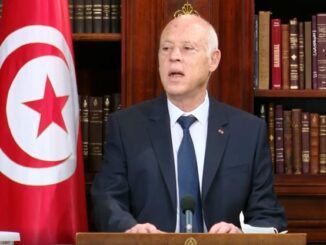
Mostly because of their involvement as the region’s major Sunni and Shiite powers in the deepening sectarian conflicts in Iraq and Syria, observers fear that Turkey and Iran are likely to be on a collision course.
The two country’s inability to accommodate each other has the potential to undermine or even undo the strong ties they have developed over the past two decades, as their economies became increasingly intertwined.
Turkey and Iran should overcome their differences
How the two countries choose to deploy their power and whether they can overcome their differences are vitally important to determining the future of the Middle East. Left unchecked, the present dynamics point toward greater bloodshed, growing instability and greater risks of direct — even if inadvertent — military confrontation.
Turkey’s intervention in Syria
Turkey’s military involvement in Syria and Iraq is partly a response to the perception that Iran is increasingly encroaching on its historic sphere of influence, especially in and around the Aleppo and Mosul battlefields close to its southern border. It is also an effort to prevent the Syrian Kurdish Democratic Union Party, or P.Y.D., which is affiliated with Turkey’s archnemesis the Kurdistan Workers’ Party, or P.K.K., to gain more territory.
Syrian rebels supported by the Turkish Army are currently advancing southward, having pushed the Islamic State out of the towns of Jarablous, al-Rai and Dabiq near the Turkish border between August and October. They are now at the gates of the town of al-Bab, and the stage is set for confrontation. The strategically important city is held by the Islamic State but coveted by others: the United States-backed P.Y.D. closing in from the east, and the Syrian Army and Iranian-allied forces from the south.
Ankara Criticizes Tehran’s Sectarianism
Speaking at the Munich Security Conference, Cavusoglu said that Tehran must cease its continued disruption to regional security and stability.
Cavusoglu criticized Iran’s conduct, branding it as sectarian and aimed at undermining Bahrain and Saudi Arabia.
“Turkey firmly opposes any division, whether religious or sectarian,” he added.
The Iranian role in the region is destabilizing, especially that Tehran is seeking to spread Shi’ism in Syria and Iraq, reported Turkey-based news agency Anadolu.
Iran responds to Turkish FM’s comments
Responding to the Turkish Foreign Minister Mevlüt Çavuşoğlu’s criticism of Iran’s “sectarian policy” that aims at undermining Bahrain and Saudi Arabia, Iran’s Foreign Ministry Spokesman Bahram Ghasemi deemd Çavuşoğlu’s comments as ‘counterproductive’.
Ghasemi said that the key culprit of instability and insecurity in the region is Turkey and some other paranoid countries; “they cannot escape from the self-created whirlpool accusing others,” Ghasemi noted.
Ghasemi added that Iran has always sought stability and security for all countries and neighbors in the region, he underlined, adding its role and policy is acknowledged and welcomed by many fair governments and peoples in the region and the world.
Iran summons Turkish envoy over Turkish officials’ comments
Iran summoned the Turkish ambassador in Tehran on Monday over the comments made by Turkish foreign minister Mevlut Cavusoglu and President Recep Tayyip Erdogan accusing the Islamic Republic of destabilising the region.
Tehran and Ankara support opposite sides in the conflict in Syria with mostly Shi’ite Iran backing the government of President Bashar al-Assad while Turkey, which is majority Sunni, has backed elements of the Syrian opposition.
In Iraq, commanders of the predominantly Shi’ite Popular Mobilisation Units, many of whom are trained and funded by Iran, have been highly critical of Turkey’s military presence there.
Turkey denounces Iranian envoy’s remarks
Turkish Foreign Ministry has denounced Iranian Foreign Ministry spokesman’s remarks that Turkey should not test Iran’s patience.
“It is neither acceptable nor comprehensible for a country [Iran] — which does not even hesitate to push to the battlefield the refugees seeking shelter from crises — to accuse others of being responsible for regional tensions and instability,” Foreign Ministry spokesman Huseyin Muftuoglu told reporters in Ankara on Monday.
Muftuoglu said Iran should “take constructive steps and go over its regional policies instead of putting the blame on countries which criticize it.”
Could Turkey, Iran build on shared interests and overcome mistrust?
Both countries have attempted to build on shared interests — defeating or at least marginalizing the Islamic State and curbing the rise of Syrian Kurds seeking autonomy — but deep suspicions about the other’s ambitions to benefit from the chaos have stopped them from reaching an arrangement that could reduce tensions.
To reverse course and avoid worse, Turkey and Iran need to overcome mistrust and go beyond merely managing differences — with the risks of accidents, miscalculations and miscommunications this entails — and frankly acknowledge each other’s core interests and security concerns.



